Wyniki wyszukiwania
44 results for query Flexibility
Reports(21)
-
Integrating Variable Renewables in Poland | Eight points on integrating variable renewable energy to the Polish power system

The Polish energy mix is changing. While absolute figures still show a rather small share of variable renewables in the generation mix, these will play a growing role in the future. The study of Forum Energii presents eight main areas of action that facilitate the further integration of the renewables in the specific context of a changing Polish power system.
7.12.2017 -
Ensuring reliability of the power system and capacity mechanisms

A stable and reliable supply of energy is the foundation of national energy security, yet it should not burden end users with excessive costs. On the one hand, it is important to keep electricity prices low, as they are the driving force behind economic development and provide opportunities for industrial development. On the other hand, wholesale energy prices should be sufficient to maintain the generating fleet. Since wholesale electricity prices fell to the lowest level in years, concerns have arisen over ensuring an adequate level of capacity and securing stable power system operations in Poland.
28.10.2016 -
Flex-E | How to develop the DSR potential in Poland and reduce the costs of the energy system

The Polish energy sector is entering a new phase of transformation. Planned integration of industry into the the support for energy security offers a chance to reduce by at least 1200 MW peak demand for electricity in Poland during periods of critical load od Polish Power System. this is what results from the analysis of the national potential of DSR services prepared by Forum Energii.
27.3.2017 -
Elements of new market design for Poland
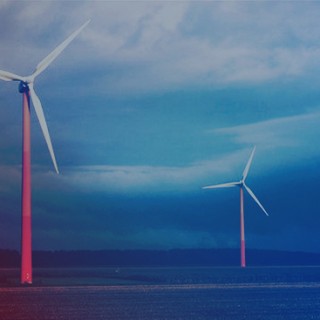
Both the European power sector at large and the Polish power sector in particular find themselves at a pivotal moment. Power systems are in transition, driven by commitments to continuing emissions reductions, growing penetration of renewables, and the need to provide affordable and reliable power.
17.12.2015 -
Risk preparedness in an integrated European electricity market

An integrated European electricity market will benefit consumers through lower prices, more cost-effective integration of renewable resources, and improved system reliability. A central question often asked in the context of the IEM is: can Poland rely on resources from neighbouring countries in a crisis situation? Is it safe to integrate market when national transmission system operators (TSOs) are responsible for managing energy systems in Europe.
2.7.2018 -
Options for integration of the Polish energy market within the European Union

Forum Energii examined how the integration of the energy market, one of the priorities of the European Union, will affect wholesale electricity prices in Poland. Depending on the option to integrate markets (with which country the merger takes place and what is its capacity), the wholesale price of electricity in Poland may fall by up to 5%, i.e. by about PLN 8 per MWh.
21.3.2017 -
How to ensure that the consumer improves the security of the energy system and benefits from it?

Ordinary Kowalski can improve the security of the energy system and at the same time save money. It is enough to change the energy tariffs and provide up-to-date information on how much electricity we use. In winter, the power system can be offloaded by 200MW. The annual costs of households could fall by as much as 160 PLN.
1.2.2017 -
Risk of capacity shortage in the Polish electricity system up to 2020
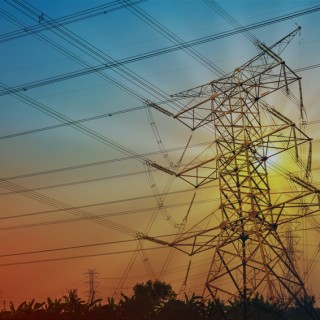
To what extent electricity shortages can be expected in the years 2016/2017? How will the reserves in the power system develop? The reserves in Poland are still relatively high, they were in 2013 at about 13 percent of the annual peak load. In 2018, the reserves will decline to about 8 percent. Assuming the so-called cold reserve, which was introduced in 2014, the reserve capacity, however, is at 11 percent in 2017. According to the provision of new generation capacity in the years 2019/2020 the reserve will increase to approximately 18 percent.
19.12.2014 -
How do we deal with summer peaks? Changes after the crisis in 2015

Will photovoltaics save us from the blackout? Summer peaks still remain a challenge, although over three years have passed, since the crisis in 2015 where the industrial consumers were faced with limitations in electricity supply. In October, Minister of Energy admitted that 2 GW of PV could help Poland to avoid blackout in the future. It has been known for many years. Forum Energii presents its assessment of changes that have been introduced to the energy system to avoid similar situations in the future.
25.10.2018 -
Poland's Energy Policy 2040 in the spotlight

Probable delays of the nuclear energy project, insufficient attention to energy costs and the risk of non-compliance with EU climate and energy targets – these are some of the comments of Forum Energii on the draft Poland’s Energy Policy.
15.1.2019 -
Flexibility of the Polish power system | Diagnosis, potential, solutions

Flexibility of the power system means its ability to maintain uninterrupted operation under conditions of rapid and huge fluctuations in electricity consumption generation. It is an inherent part of the system design and control of its operation. In the analysis, Forum Energii puts forward solutions supporting the improvement of the national power system flexibility. In addition to reducing the costs of the power sector and the improvement in quality and reliability of the electricity supply, their objective is to reduce emissions by the power sector.
12.2.2019 -
Locational market in Poland. Security of supply, costs and the impact on the energy transition

In the latest report Locational market in Poland. Security of supply, costs and impact on the energy transition, Forum Energii recommends changes on the energy market in Poland. It is a response to the emerging problems of the Polish energy transformation - high prices, ageing infrastructure, dominant share of coal. As an example, it presents the functioning of the electricity markets in the United States.
4.7.2019 -
Capacity market for review | Analysis of the results of three auctions

The three capacity auctions for 2021-2023 are behind us. What is the result? Has it been possible to encourage manufacturers to make new investments? Does the capacity market support diversification of the mix? How much does the capacity market cost? And finally, do the new EU regulations concerning emission standards mean the end of the capacity market in Poland?
22.10.2019 -
Poland: climate neutrality by 2050. Electrification and sector coupling

Electrification sets the direction of inevitable changes in many areas of our lives, including transport and heating. This direction will force a closer cooperation of various sectors of the economy with the future, completely different from today's power system. The integration of three industries — transportation, heat, and power generation— is the new concept for the operation of the entire energy sector. What can it look like in 2050? How will the necessary changes bring Poland closer to the goal of climate neutrality? Forum Energii in the new analysis convinces that a good strategy of sector coupling is a benefit for the Polish economy and society.
19.6.2020 -
How to fill the coal gap? 43% RES by 2030?
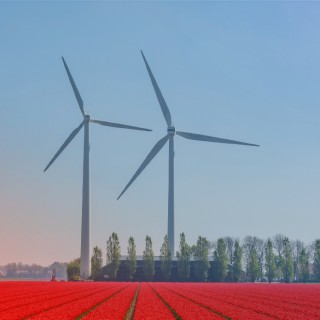
Poland has started phasing out coal. But while production is decreasing, CO2 emission allowances are becoming increasingly expensive. After 2025, when public support for outdated coal blocks runs out, energy companies will want to shut them down. With a decade, at least 10 GW of power may be lost from the Polish power system. How can this gap be filled?
26.10.2020 -
Heat electrification in Poland | The path to clean heat
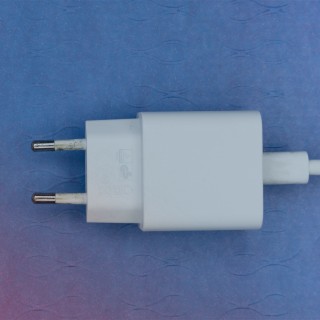
Despite the government's declarations, progress in improving air quality in Poland has been poor. The rate of modernisation of buildings is slow, and public funds continue to support the replacement of old coal boilers with other coal-fired options, which other European countries have phased out. Meanwhile, a huge stream of European money will be flowing towards 'clean heat' in the coming years. In the newest analysis from the Forum Energii, we explain why it is worth betting on electrification of heating, identify which technologies have a future, and explore how this will affect the energy system.
26.1.2021 -
Dynamic and just | Network tariff design for the future
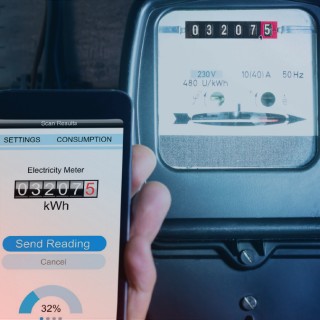
It is non-elastic, inefficient, unsuited to the changing realities of the energy market and the accelerating energy transition. The Polish model of network tariffs, i.e. the system of payments for delivering electricity to consumers, must be changed. In its latest report, Forum Energii, together with the Regulatory Assistance Project, analyses the principles that need to be considered when designing a new approach to tariffs.
6.5.2021 -
Microinstallations on a turning point | How to secure the future of distributed energy in Poland?
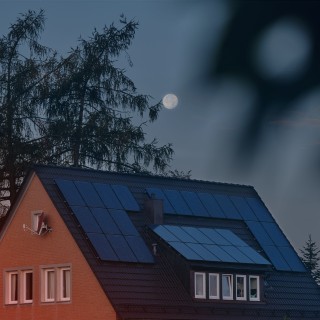
In recent years, over 600,000 households and businesses have invested in their own solar installations, and approximately 35,000 jobs have been created in companies offering services in this segment. This is the biggest, albeit unplanned, success of the Law and Justice government in the energy sector. However, further expansion of micro-installations in Poland is questionable - the government is planning changes in the rules governing this dynamically developing energy sector. This is an operation on a living organism, therefore surgical precision is needed in introducing changes - a transparent process, clear intentions and time that will allow the newly established sector and energy companies to prepare for the transition.
21.10.2021 -
Distribution grids and electromobility. Planning and development

In recent days, British Prime Minister Boris Johnson announced an acceleration in the development of electromobility. By 2030, 145,000 charging points are to be built in Britain, and from 2022 all new residential and office buildings will have to be equipped with chargers. This is just one of the announcements of the global revolution in transportation. In Poland the pace and character of changes have different dimension. The National Fund for Environmental Protection and Water Management (NFOŚiGW) has just announced a programme of subsidies for the construction of charging stations for electric and hydrogen vehicles as well as PLN 1 billion support for operators to develop distribution networks.
30.11.2021 -
Potential of cable pooling in Poland
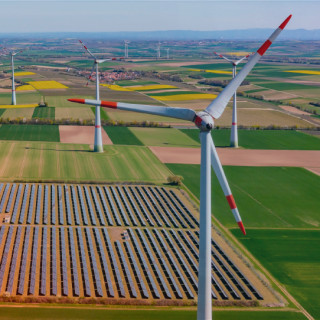
The development of renewable energy sources is one of the most urgent needs of the Polish energy system. RES lower energy costs, reduce emissions and increase energy security. However, although energy companies, industry, local authorities and individual consumers are interested in investments in RES, the further development of new, emission-free energy sources has been a challenge. One of the main problems is the denial of connection capacity to new RES investments. In addition to the necessary grid investments, a more efficient use of the existing infrastructure is needed to solve this problem. One of the tools available is cable pooling - enabling the interconnection of RES sources.
18.5.2023 -
Past time for gas?

Over the past two years, natural gas has become a high-risk fuel: it is subject to huge price fluctuations and, following the disruption of supplies from Russia, competition for imports of this resource from other sources is increasing. Not long ago, there were plans in Poland to significantly increase the consumption of natural gas throughout the economy - by 75% by 2035. It was supposed to be a transition fuel.
14.6.2023
Insights(19)
-
Spring is coming in the DSR

Last year, PSE launched the first edition of the DSR program. Its outcomes are positive. However, this year it could be much better. Apart from the second edition of the PSE program, the capacity market is also starting.
5.4.2018 -
The US is withdrawing from the Paris Agreement - what does it mean?

President Donald Trump has announced the retreat of the Paris Agreement and a wish to renegotiate the global agreement. Trump's decision has a political dimension and will not have an impact on Europe's energy strategy.
2.6.2017 -
The amendment to the Energy Law Act lowers the rank of the Poland's energy policy

The draft amendment to the Energy Law (October 2018) prepares the implementation of the EU requirement to submit integrated national plans in the field of energy and climate. The regulations proposed in this form, however, lower the rank of the national energy policy. They also change the mode of appointing the President of the Energy Regulatory Office, which may affect its independence. This is worrying.
16.11.2018 -
Capacity market auction results | What next?

On November 15, 2018 PSE S.A. (state owned transmission system operator in Poland) held the first auction as part of the new scheme of remunerating capacity, that is a capacity market. The auction secured 22.7 GW for 2021 for a total amount of over 5 billion PLN (over 1,2 billion EUR). The cost of the capacity scheme appears significantly higher than the 4 billion the Ministry of Energy assumed for the year.
19.11.2018 -
How much is 550 g after the end of the European negotiations?

Negotiations on the EU regulation on the electricity market were concluded on December 19, 2018. For Poland it was the last and most controversial element of the Winter Package. Since 2017, the European Parliament and the Council discussed how to formulate regulations introducing a CO2 emission limit of 550 g/kWh of electricity produced. They are to apply to the capacity markets.
21.12.2018 -
Poland’s Energy and Climate Plan to 2030 – not sufficient EU perspective

The National Energy and Climate Plan 2021-2030 is the second strategic document for the Polish energy sector in addition to the long-awaited Poland’s Energy Policy until 2040. It will affect, among other things, investments in the energy sector, the implementation of our international commitments, energy security and improvement of air quality. Therefore, it should not only describe the current state of the Polish energy sector, but above all define future objectives and determine measures and actions to achieve them.
26.2.2019 -
BlacUKout and energy transition

When electricity was cut off for almost an hour in London on 9 August, a nervous wave swept through the media, whistling up blackout throughout Europe and blaming the unstability of renewables. It was worth holding off on a moment with such opinions, because the causes and sequence of events proved to be much more complicated. The British transmission system operator National Grid has published an initial report which shows that a conventional gas-fired power plant failed in parallel to the offshore farm. And it all started with.... lightning.
21.8.2019 -
Will the revenues from CO2 emissions disappear into thin air?

Low emission energy transition will cost up to 200 billion EUR in the years to come. This impressive amount may suggest that Poland cannot afford to invest in the power or heating sectors. Meanwhile, building a safe and reliable system is crucial for citizens, economy and climate. It is high time to look at potential sources of financing for low-carbon modernisation, and make sure they do not vanish into the budget.
28.8.2019 -
1 GW of PV in Poland - this is just the beginning

In Poland we have just reached 1 GW of capacity in photovoltaic installations. Their growth rate has accelerated in the last several months. With the increasing economic attractiveness of photovoltaics, we are no longer wondering whether this development will be continued, but what are its limits. One thing is certain - we will wait much shorter for the next gigawatt and there will be at least a few drivers of this growth.
11.10.2019 -
RES auctions in Poland | Results and trends

The RES auction marathon is behind us and we finally know the final result. Twelve auctions for various technological baskets, for new and existing installations, were held during three weeks. The contracted 90.3 TWh of new, green electricity for 15 years is worth PLN 20.2 billion. As much as 86% of this volume will be purchased at prices lower than those currently prevailing on the wholesale electricity market. This is another proof that renewable energy sources can compete with conventional units without additional support.
23.12.2019 -
Will the Polish offshore finally speed up?

Offshore wind farms are still a distant perspective, even though the first location permits were issued in 2012. After many years, a draft act on the promotion of offshore wind electricity generation, which is expected to accelerate offshore development in Poland, has been finally prepared. The period of public consultations of the bill ended on February 14th and there is a chance to complete the legislative efforts by mid-2020. Are the proposed solutions sufficient and will they serve their purpose?
17.2.2020 -
Will the coronavirus slow down or speed up the low carbon energy transition in Poland?

The world is in chaos. The priority is to stop the spread of the virus and contain the crisis. A stable energy supply is crucial - it's hard to imagine what would happen if there was no power or heat supply now. The million dollar question however, how will the current crisis affect the energy transformation in the long term?
21.3.2020 -
Energy sector integration | Key to becoming climate-neutral by 2050

The future energy mix will be dominated by renewable energy sources (RES) with zero production costs, such as wind farms and photovoltaics. The abundance of cheap electricity will allow for the replacement of fossil fuels, both in heating and transport sectors. Effective integration of these sectors, within one energy system, will also help to solve the problem of weather-dependent RES production.
28.7.2020 -
EU Recovery Fund: 3 things Poland needs to do for the mechanism to bring real change

The National Recovery Plans are built on credit. The investments we design today must serve future generations—our children—because we all will be paying it back until 2057. It is based on concrete reforms, changes that need to happen in order to achieve the intended objectives. The consultations on the recovery plan in Poland is now coming to an end. How should we change it so that the money pays off in the future? In this opinion, I refer to the Green Energy and Energy Efficiency Component.
31.3.2021 -
Poland needs 2 GW of new photovoltaic capacity annually - that's why prosumers should be supported

The government is announcing changes in the support system for prosumers. The combination of the current operational support scheme (a version net-metering, called “rebates”), subsidies in the form of the “Mój Prąd” program and tax credits resulted in rapid development of solar energy in Poland. Within a few years the installed capacity in micro-installations increased from 200 MW to 3.3 GW. Security of energy supply in the summer has strengthened, CO2 emissions have been reduced and the generation mix has become more diversified to some extent. Citizens have fallen in love with renewables for good. So what’s next?
23.6.2021 -
10 steps to overcome the energy crisis

The prices of coal, gas, and CO2 are reaching record levels while the price for electricity is galloping, causing panic among politicians, energy consumers, and institutions responsible for maintaining Poland’s energy security. There is a state of emergency in the Polish energy sector caused by, among other things, the situation on the energy source market, but not only. The country is also bearing the consequences of many years of postponing necessary modernisation decisions. It is time to take urgent actions that match the situation.
8.12.2021 -
The capacity market in Poland―more expensive than ever

Poland has already held six power auctions. Analysis of their results shows that this mechanism in its current form is not an optimum solution for the country. The capacity market has proved more expensive than anticipated, has failed to curb the increase in electricity prices and, in addition, has contributed to the petrification of the outdated and coal-based generation structure. The arduous task of plugging the coal gap has only just begun, which is why decisions on modernisation and on methods for supporting capacity up to 2030 must be taken urgently.
13.1.2022 -
Is the Kremlin turning off the gas tap? Time to exclude gas and coal from households
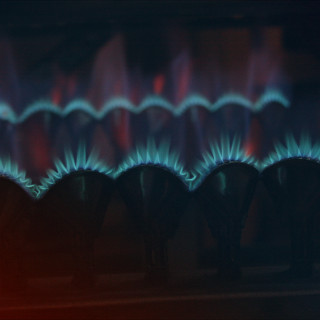
How to prepare households for an energy war with Russia? Gazprom is suspending gas supplies to Poland under the Yamal contract. This is no great surprise. At the end of this year, Poland was going to give up buying Russian gas anyway. Physically, there is unlikely to be a shortage of gas, but Poland is entering a period of high prices, which will limit the use of this raw material. The role of the state should be to wisely support society in smoothly passing through the crisis. Without reducing demand in sectors where it is possible, this will be difficult.
28.4.2022 -
Renewables can reduce fuel imports

Last year the import of gas, oil and coal cost Poland PLN 89 billion. This year, it will be much more - by the end of June it already amounted to PLN 85 billion[1]. The supply crunch and spike in fuel prices have become the source of an economic and energy crisis, and a means of exerting pressure on Europe. Meanwhile, renewables not only reduce emissions and energy prices, but also import dependency on energy resources.
29.11.2022
Events(4)
-
Conference | Flexibility of the Polish power system | Reform of the energy market
6.6.2018 CZIiTT, Politechnika Warszawska ul. Rektorska 4, Warszawa
On June 6, 2018, Forum Energii in partnership with the CZIiTT of the Warsaw University of Technology organized the conference dedicated to flexibility of the power system in the context of the expected changes of this sector in Poland.
-
Panel expert meeting | Locational market - an answer to the challenges in the Polish power system?
18.9.2018 CZIiTT, Politechnika Warszawska ul. Rektorska 4, Warszawa
The energy market is undergoing major changes. The most important motivation for reforms is the lack of appropriate price signals to invest in energy and the lack of mechanisms to reward flexibility. Is a locational market an answer to the challenges in the system? Its pros and cons were discussed during the panel of experts on the September 18, 2018.
-
Workshop | eXtremOS | Extreme developments and the value of flexibility
17.5.2019 Warszawa
In most cases, discussions on the future shape of the energy system are focused on the possible developments. However, this does not include discussions on such scenarios, which are extreme in nature and can be destructive for the market and the system. In this context, it is the ability of the system to react quickly to these events, i.e. its flexibility, that determines its stability. The essence of flexibility will be discussed by the participants of the international eXtremOS workshop on 17 May 2019 in Warsaw.
-
What future for the Belchatow Power Plant? Directions and opportunities for transformation
20.10.2022 Łódzka Agencja Rozwoju Regionalnego
Poland's energy sector is facing an urgent transformational challenge. In the face of this process, it is necessary to maintain generation capacity to ensure the security of electricity supply while addressing economic and social challenges. The Belchatow power plant holds a special place on the road map of energy and economic transformation. According to the territorial plan for the just transition of the region of Lodz, lignite production in Belchatow will decrease.